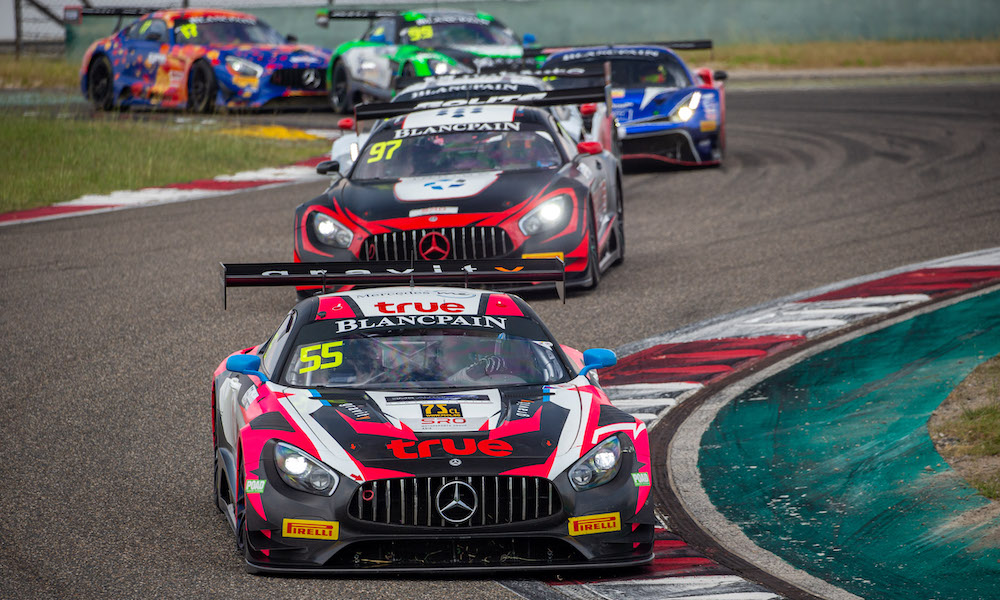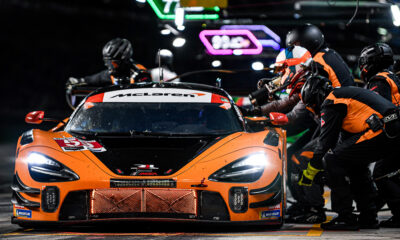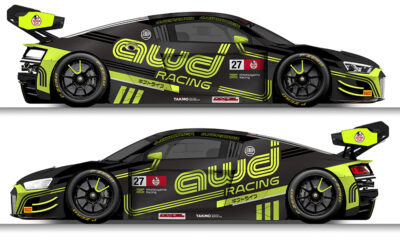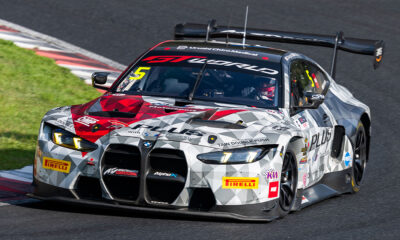The head of Mercedes-AMG’s global customer racing department says the German marque has been adapting its GT racing support network in Southeast Asia to reflect the “huge challenges” brought on by limited activity during the COVID-19 pandemic.
Stefan Wendl told Sportscar365 that ongoing travel restrictions related to the health crisis and a lack of racing have made it “really difficult” for AMG to fully utilize its customer support program in several countries such as China, Thailand and Malaysia.
However, he also expressed optimism that the Southeast Asian sports car racing scene can be “quickly restarted” once restrictive measures ease, based on GT car demand.
SRO Motorsports Group recently confirmed the cancelation of the Fanatec GT World Challenge Asia powered by AWS season for the second consecutive year due to travel restrictions, particularly quarantine periods for arrivals into several Asian nations.
The GTWC Asia series, which included six full-time Mercedes-AMG GT3s and four corresponding GT4 cars in 2019, has visited different tracks around Asia including Shanghai International Circuit in China, Sepang in Malaysia and Yeongam in South Korea.
In addition to that competition’s cancelation, the Asian Le Mans Series last month announced that it will return to the United Arab Emirates in 2022, citing travel restrictions as the main reason for extending its stay in the Gulf region by another year.
These developments have left Southeast Asia’s sports car racing scene without its two main regional championships for two years, creating significant challenges for invested teams, drivers, circuits, suppliers and manufacturers.
“There are huge challenges for everybody,” said Wendl. “For the teams themselves, the logistics and also for us, for the support and service that our teams expect to receive.
“We brought into Asia already, on a very high level, engineering and parts support.
“We have everything in place but it’s really difficult to use it because still we have engineers coming from Australia, Japan or Europe to help and support our teams there.
“At the moment there’s very limited racing and most likely only in the national Chinese championships.
“It’s really tough on our team to build up local support, which enables our teams to still receive the support they’re used to and to get the technical support they need to run their cars professionally, even if they’re only running in their local championship.
“As soon as the travel restrictions are gone and all of the logistics get easier, then for sure we will reach the same level of support we had before the pandemic.”
Wendl explained that in the meantime, Mercedes-AMG Customer Racing has switched to a greater reliance on internal support within the region, to ensure that teams continue to receive the necessary assistance for their programs.
“You need to make your services independent from external stuff,” he said.
“This is quite tough. You need people that are located in China and those [countries] that have less restrictions.
“This is the only way to make it happen [now]. All of the other countries face quarantine rules coming in or coming out of the country and then you waste too much time. This is nothing you can handle for your staff, if they’re going into a hotel for 14 days.
“This is a nightmare for everybody. Sometimes it’s OK for once or twice a year but you cannot do it [all the time]. It’s a waste of life time.”
Mercedes-AMG supports its Asian teams with a traveling container-based parts setup, while engineering support personnel are flown in from other countries.
According to Wendl, the provision of engineering support is the greatest challenge facing Mercedes-AMG’s Customer Racing department in Southeast Asia at the moment.
“This is the limiting factor,” he said. “The parts aren’t the problem. They’re there and could be supplied but we need staff that knows about how to support [the teams] and the engineers.
“We have a solution for our Asian customers which they will hopefully use as soon as racing [returns] for them.
“We have a long history of racing in Super GT and those teams are supported directly from Germany. We have local engineering support to offer translation but, on top, they get European support and are serviced directly out of Germany with parts.”
Despite the current challenges of series being canceled and relocated, Wendl is optimistic that the sports car racing market in Southeast Asia will rebound once travel restrictions are lifted, based on continued demand for GT3 and GT4 car sales.
Chinese national motorsport restarted in May, with the first GT Super Sprint Challenge round at Shanghai attracting an impressive grid of 17 GT3 cars, however racing in the country was soon suspended by a decision from the Chinese national sporting federation in response to the Gansu ultramarathon disaster.
“I think the demand is there,” said Wendl. “We get contacted from teams and drivers and we always hear and face the restrictions they have.
“It was restarted two months ago and then the Chinese government closed it down until the end of the year.
“It’s not so much in our hands but we know that as soon as everything is open and the availability of track days and racing is there we expect to have the market quickly restarted.
“It’s really critical for the teams. Because if you have such a long break — like two or three years — for sure your staff and all the things that were there have different jobs because they need to earn something.
“This will be a challenge but I think you never lose your motivation and passion for motorsport and I hope this is the kick-off to make it happen again.”




























